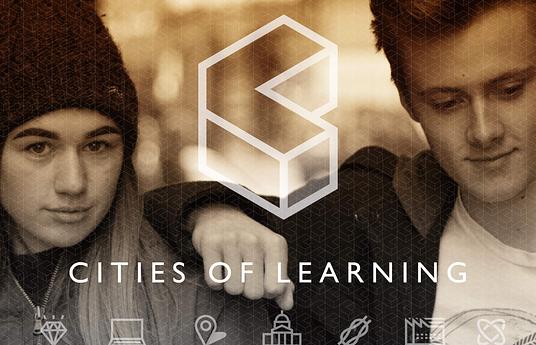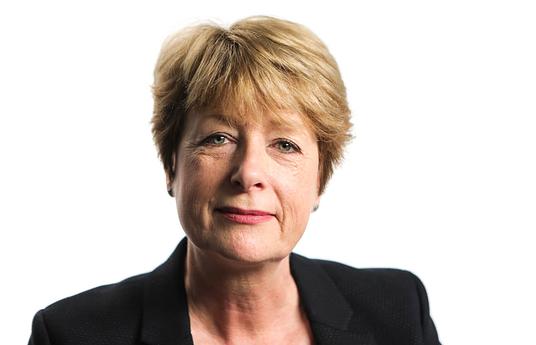One of the major challenges for all education stakeholders, is how to make education a tool for increasing equality within our societies. In competitive job markets and increasingly high living costs in the world’s major cities, it’s becoming harder than ever for children to carve careers for themselves without assistance. Without the financial backing of parents and connections within the industry, young people can struggle to get themselves a foothold on the ladder of their chosen career.
Education, as a system, has always presented a unique opportunity to level the playing field, to help every child to succeed in whatever is their given talent and dream. However, our schools have become increasingly disconnected from the world in which they are preparing today’s children for, and being out-of-step has the worst implications for those who can’t rely on their parents to help them out.
That’s where our cities and employers can come in and help to close the gap. Through giving students real-world learning, we can give them the experience and connections they need to pursue a career they love after graduating from school or have a clearer idea of what to study in further education to help them to achieve their goals. Cities of Learning is an initiative looking to make this a reality for students in the UK.
Through the use of Digital Open Badges, Cities of Learning helps to track the skills acquired via informal learning paths, which gives every child the opportunity to acquire the experience they need to pursue the career or further education of their choice, whilst also tracking the talents that are left out of traditional assessment models. ‘Cities of Learning looks to improve social mobility by opening up access to learning and work opportunities for all,’ explains Clayton. ‘Cities and towns are full of people with unrecognised talents and potential, a huge untapped resource. Skills are developed every day in the community, at work and online, but they are hidden from view and disconnected from formal education and employers. Open Badges gives us the tool to recognise and promote learning where it happens.’
Through the Cities of Learning digital platform, opportunities within a child’s locality are made visible to all students, not just those with personal connections. This helps children to see what pathways are open to them and explore new avenues they may not have known were available before. ‘By participating in informal activities, connected into newly created ‘progression pathways,’ individuals are able to choose whether to follow destination or interest driven routes,’ explains Clayton, suggesting that this active learning and choice can help to engage learners in new, innovative ways. ‘Individuals also benefit from these new progression pathways as they actively link learning to wellbeing, heritage and identity.’
Through each activity a student undertakes in the Cities of Learning programme, they earn a digital badge to exemplify what skill they’ve developed. They are then directed to the next available badges and skills they can acquire helping them to ‘progress into meaningful learning and work’, giving them the experience they need to get on in life. ‘Through the recognition of skills, the need to demonstrate prior life experiences – a barrier for many from disadvantaged backgrounds – is removed. The model increases access to multiple entry points for learning, particularly for young people furthest from the learning and labour market,’ explains Clayton.
Until now, it’s been hard to track the skills that fall outside of traditional academia, as our assessment methods haven’t been designed to capture them. This leaves a gaping hole in a child’s report card and therefore doesn’t truly reflect a child’s full range of capabilities. This is an ineffective system for our present world, as today’s young people need to have character skills, such as creativity, resilience and collaboration, and a love for learning, in order to adapt to a changing workplace. Similarly, today’s employers and admissions staff need to be able to see these skills clearly in an applicant’s educational results and work experience to know whether they have the right set of character skills to suit the positions and courses they have available.
Cities of Learning makes is possible to track these skills and creates a universal language so that everyone understands the qualities each student possesses. ‘Open Badges provides individuals, employers, and education providers with a common language to communicate skills, which makes skills visible across cities,’ explains Clayton. ‘They give people a permanent, portable record of achievement to communicate their talents – a necessity for the way we learn, work and live in an interconnected, global marketplace. The model cultivates a sense of community cohesion, agency and voice, belonging and civic pride for young people.’
In order for the future of education to happen today, we need a multistakeholder approach that includes each section of society, from employers to teachers, to policy makers to education-focused organisations. Through collaborating together and breaking down the traditional barriers of the school walls, we can create an educational experience that has true meaning for today’s students and their societies. More than this, we can help to level the playing field so that every child has the opportunity to find the path that’s right for them. If we all do our part as leaders to create a fairer, more open system, we can enable today’s young people to lead their own learning and to realise what they’re truly capable of.
Read more about Cities of Learning by exploring their innovation page.



